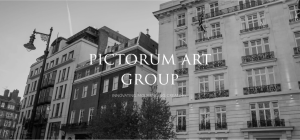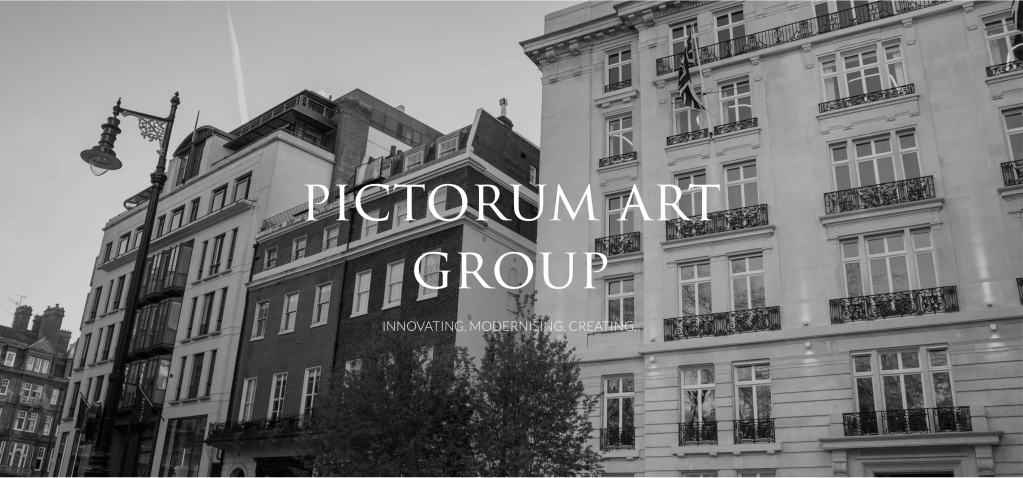For the past three days, Los Angeles–based artist Brittany Fanning has posted the same picture to her Instagram grid. It shows two grinning men in double-breasted suits, complete with pocket squares. In her caption, she identifies them as brothers Jackson Navin and Matthew Navin, of London-based gallery Pictorum Art Group. In a separate posting, Fanning says that she is still owed money from the gallery related to a group show she participated in three years ago.
During the course of her campaign, Fanning said she learned that other artists are claiming to be in a similar situation and have also not received payment from Pictorum. One of these artists, Finn Johnson, received a court judgment ordering payment for balances owed to her. Additionally, former staffers told ARTnews that they have also gone unpaid despite numerous attempts to contact the principals.
Pictorum was dissolved in July, and ARTnews’s attempts to reach the Navin brothers were unsuccessful.
Though Fanning described herself in an interview with ARTnews as somewhat new to the art world, she has had solo shows since 2022 at well-regarded galleries around the world, including Miami’s Mindy Solomon, Los Angeles’s Steve Turner, and Seoul’s Galerie BHAK. She has also participated in group shows in Rome, Mexico City, and Taipei since 2018. The artist has in the past painted brightly colored, sunny scenes of leisure settings often intruded upon by wild animals; her most recent work has reverted to a black and white palette.
Fanning first connected with Pictorum in 2022. Initially, she thought the gallery was doing great things, discovering new artists and hosting events to cultivate collectors, she recalled in her interview. But Fanning was surprised when she learned about the gallery’s terms for payment. Rather than offering the usual arrangement in which a gallery takes works on consignment and then pays the artist their share of the proceeds (typically 50 percent) once a work sells, Pictorum would instead pay artists a smaller share, 20 to 30 percent, upon receipt of the work, which would go into an exhibition that would be sold later. The gallery would pay the balance then after it sells. Receiving the balance for her works that have sold, or getting back works that have not, has proven impossible, Fanning said.
Pictorum Art Group incorporated in 2022, and included a gallery on Portman Square in London’s Marylebone neighborhood. The company was intended, per its website, “to create a group of complementary art companies that seamlessly intertwine and provide a holistic eco-system that collectors, artists and corporations alike can benefit from.” These included an advisory arm; Uma Gallery, still “set to launch in 2018” per the website; Articul8, “an art commentary platform and aggregator of information within the art market,” supposedly set to launch in 2024; and Duveen + Vollard, offering logistical support to the art world. (The latter’s name refers to Britain’s Joseph Duveen and France’s Ambroise Vollard, two of the most important art dealers in history.)
Screenshot
Fanning said she received one payment in 2023, for a percentage of the sale of the painting Shark Lover; she says she is still owed $2,640 for that work. The gallery sold two other paintings to a collector in Saudi Arabia, for which she has received $1,000 in the aggregate. Fanning showed ARTnews the invoice sent to the collector by the gallery. She says she’s owed around $6,500 for those two. “That’s a lot of money to me,” she said.
Fanning said Matthew Navin’s mother-in-law, Beldish Shergill, is also an owner of Pictorum. A UK government website used to locate and update UK-based companies identifies Shergill as Pictorum Art Group Limited’s only officer in the role of director. (That same website has an entry for both Matthew Navin and Jackson Navin, listing them both as director, with a label indicating “resigned,” for a company named Pictorum Advisory Limited.)
Brittany Fanning, Shark Lover 2022.
courtesy the artist
Correspondence and legal documents provided to ARTnews by Jenny Thompson, acting on behalf of her daughter, artist Finn Johnson, reflect a court judgment for Johnson against Pictorum Art Group in the amount of £8,500 (about $11,240). The correspondence includes emails from Matthew Navin, identified as the company’s CEO, admitting to liability for outstanding payments for two artworks, as well as demands by Thompson’s attorneys, Keoghs Nicholls Lindsell and Harris, to Anderson Brookes, the liquidators of Pictorum.
Brittany Fanning, Self Portrait (In a Robe) (2025).
courtesy the artist
“Our client has expressed serious concerns regarding the conduct of the company’s directors, particularly as they suspect the directors may have been engaged in fraudulent trading and/or, at the very least, wrongful trading prior regarding the company affairs,” the letter from Johnson’s counsel reads.
That letter indicates that the attorneys have had trouble locating Shergill to serve legal papers. “On one occasion, a person believed to be a family member of the Director informed the bailiff officer that they had never heard of the debtor,” reads the letter, which adds that this “raised further concerns regarding the good faith and conduct of the Director.”
The letter further alleges a “concerning pattern of behaviour by the company” as “[s]everal young artists entered into agreements with the company, surrendered their paintings or artworks, and received no payment. The company repeatedly promised future payment, which was never fulfilled.”
Nicole Bainov worked on a consultant basis as sales director for Pictorum from 2020 to 2022; her role was primarily conducted remotely. She is still owed three months’ salary, she said in a telephone interview with ARTnews. “I’ve been a close friend to Brittany [Fanning] for years, and I brought her to the gallery,” she said, noting that Pictorum hadn’t returned Fanning’s unsold works and had not sent her payment in a timely fashion. “The gallery was not operating in an orthodox way.”
Another former employee, speaking anonymously pending a legal action, claimed in a conversation with ARTnews to be owed over £15,000 ($19,850).
Though Bainov is owed back pay, she said, “the most important thing, to me, has always been the artist. I’m a collector myself and I want to protect the artist. … Pay the artist first and everything comes after.”

